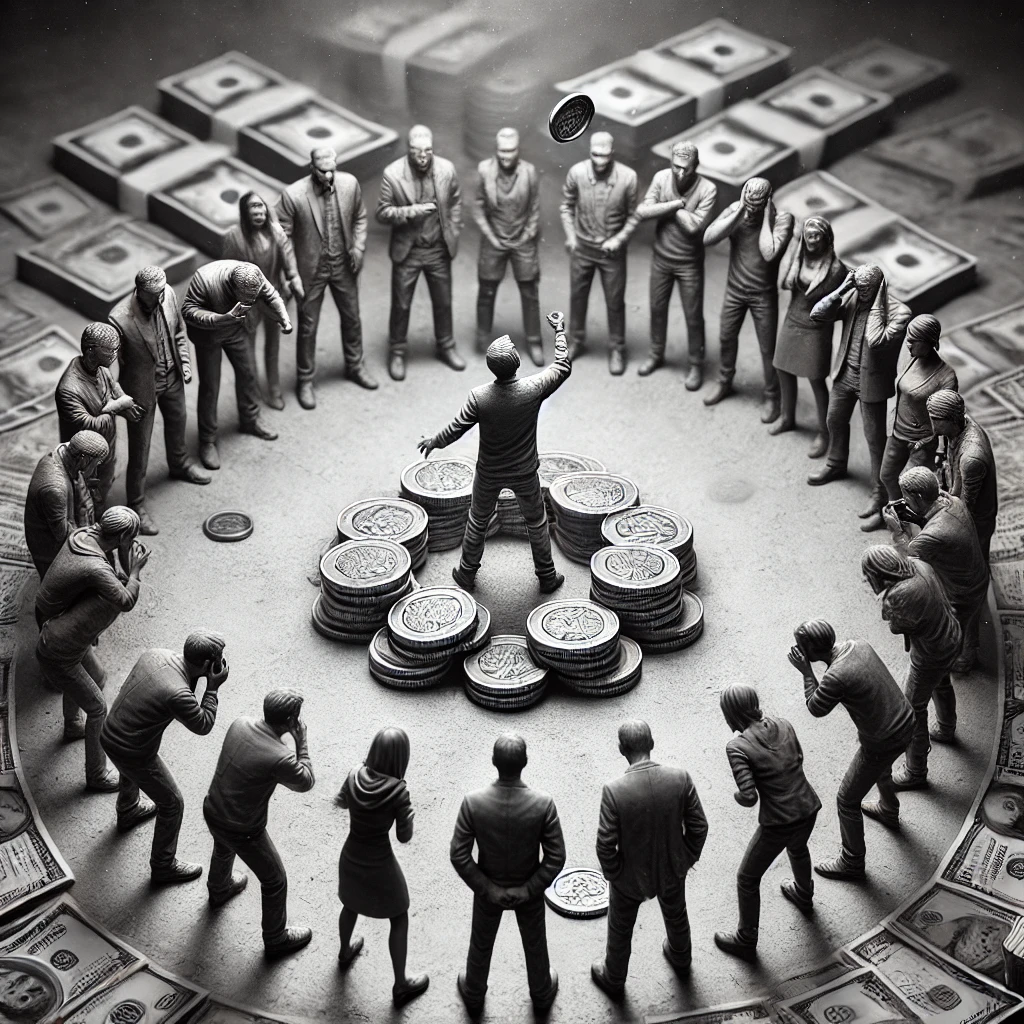MrBeast (Jimmy Donaldson) has built an empire by understanding what makes people watch, click, and care. His latest venture, Beast Games, backed by Amazon MGM Studios with a staggering $100 million budget, is his biggest project yet—and it’s redefining the future of entertainment.
But one moment in Episode 9 stood out beyond the spectacle: a single $5 million coin flip that forced a contestant to decide—double the total prize pool to $10 million or be eliminated instantly.
It wasn’t just a dramatic twist—it was a masterclass in incentives, risk-taking, and audience engagement. And if you look deeper, there’s a lesson here that applies far beyond reality TV. In fact, MrBeast’s entire business model revolves around the same principles that drive real financial success—leveraging capital, maximizing return on investment, and understanding when to take big risks vs. when to preserve wealth.
The $100M Amazon Deal: Why It’s a Game-Changer
Amazon’s massive investment in Beast Games isn’t just a nod to MrBeast’s insane popularity—it’s a signal that YouTube-born creators are now competing directly with Hollywood and mainstream entertainment.
Here’s why Amazon went all-in:
✅ Guaranteed Viewership – MrBeast consistently pulls in hundreds of millions of views per video, outpacing most TV shows and streaming originals.
✅ Unmatched Audience Engagement – Unlike traditional reality TV, MrBeast’s content isn’t passive—it demands participation. Viewers aren’t just watching; they’re emotionally invested.
✅ Virality Factor – Every MrBeast video spawns massive social media conversations, reaction videos, and endless memes, creating millions in free marketing.
✅ Disrupting Traditional TV – Amazon isn’t just investing in a show—it’s betting on a new way to produce and distribute entertainment. Beast Games is paced like a YouTube video, engineered for maximum retention.
Lesson for Entrepreneurs & Investors: This is a perfect example of leveraging capital to scale wealth exponentially—something business owners and investors should pay attention to.
- MrBeast could have self-funded Beast Games, but instead, he leveraged Amazon’s resources to grow beyond YouTube, protecting his downside while increasing his upside.
- Just like investing in a business or building Mailbox Money (passive income streams), the real key is using other people’s money (OPM) to scale faster.
The $5M Coin Flip: A Masterstroke in Incentives & Risk-Taking
Why did the coin flip resonate so powerfully with viewers? It wasn’t just a game mechanic—it was a high-stakes psychological experiment on risk vs. reward.
1️⃣ High-Stakes Decision-Making (Risk vs. Reward Psychology)
- The contestant had fought their way to the final six but wasn’t guaranteed any prize.
- The moment forces the audience into an internal debate: “What would I do in their place?”
- Suddenly, the show wasn’t just entertainment—it became a deeply personal decision for every viewer.
This is exactly how real-world financial choices work:
- Do you take the safe path and stick with a job for a paycheck?
- Or do you take a calculated risk—investing, starting a business, or building passive income?
2️⃣ Emotional Investment & Psychological Warfare
- Viewers had already spent hours watching contestants battle their way to the top.
- Now, they were watching someone gamble their future on a single moment.
- The fact that only the contestant would be eliminated (and the prize pool would increase for everyone else) added another layer of tension.
This plays directly into Charlie Munger’s perspective on incentives—people will always follow the rewards placed in front of them.
- Employees stay at jobs they don’t love because the paycheck is predictable.
- Entrepreneurs take risks because the upside potential is unlimited.
- MrBeast structured this moment knowing the audience would be hooked—because incentives drive human behavior.
3️⃣ Virality & The Power of Word-of-Mouth Marketing
- The insane nature of the coin flip made it instantly shareable.
- Twitter, TikTok, Reddit, and YouTube exploded with debates: Was this a brilliant risk? Or an unnecessary gamble?
- Reaction videos flooded YouTube, further amplifying the reach.
MrBeast engineered a viral moment that would keep people talking long after the episode aired—just like how a great investor or business owner thinks about long-term impact, not just short-term results.
MrBeast’s Strategy Mirrors Smart Wealth-Building
MrBeast isn’t just creating content—he’s building a financial empire that keeps printing mailbox money, even when he’s not working.
Here’s how his approach mirrors real wealth-building principles:
✅ Brand Expansion – His Amazon deal legitimizes him beyond YouTube, just like how diversifying into real estate, stocks, or business ownership strengthens financial security.
✅ Maximum Monetization – Ad revenue, sponsorships, and partnerships generate multiple streams of income—just like investors collect dividends, rental income, or passive revenue from businesses.
✅ Leveraging Capital Efficiently – He uses other people’s money (Amazon’s budget) to scale bigger while keeping his personal risk low—just like smart investors use leverage strategically to maximize returns.
This is the exact opposite of the traditional mindset of trading time for money at a job. Instead of working for money, he’s making money work for him.
This ties directly into the philosophy of “You Only Need to Get Rich Once“—once you reach a certain level, you don’t have to take unnecessary risks anymore.
- The goal isn’t just to make money—it’s to build sustainable wealth that works for you.
- Whether it’s through investing, business ownership, or mailbox money , the key is to set up systems where money continues flowing, even when you’re not actively working.
Final Question: Would YOU Flip the Coin?
The $5M to $10M coin flip wasn’t just a stunt—it was a real-life case study in risk tolerance, incentives, and human psychology.
Now, imagine this:
🤔 What if MrBeast had turned the decision over to the audience?
🔥 What if YOU had to decide whether to flip the coin—risking your own shot at winning but giving EVERYONE in the game a chance at doubling the prize?
💭 Would you take the risk? Or would you play it safe?
Drop your thoughts in the comments. 👇🔥
